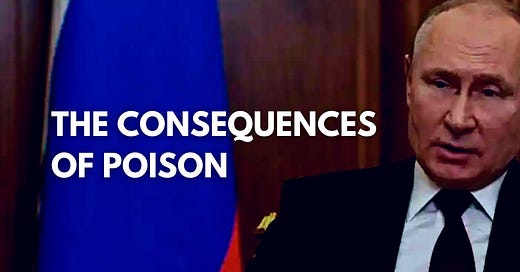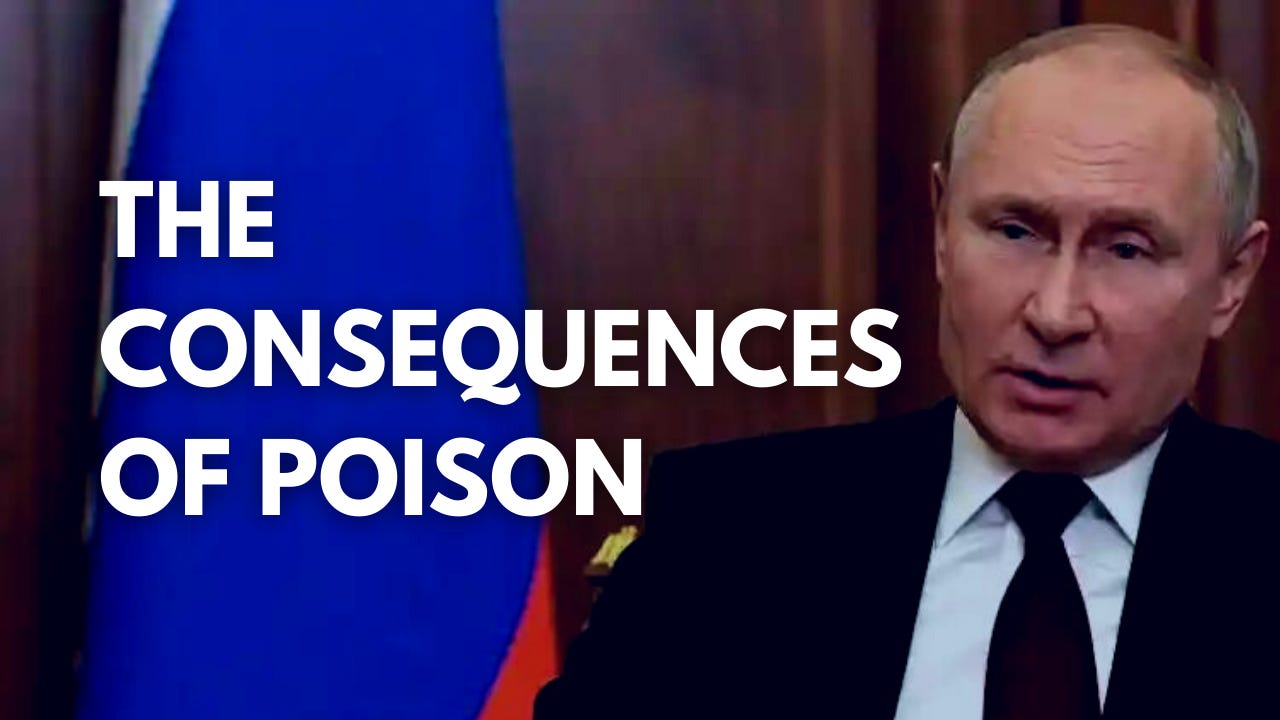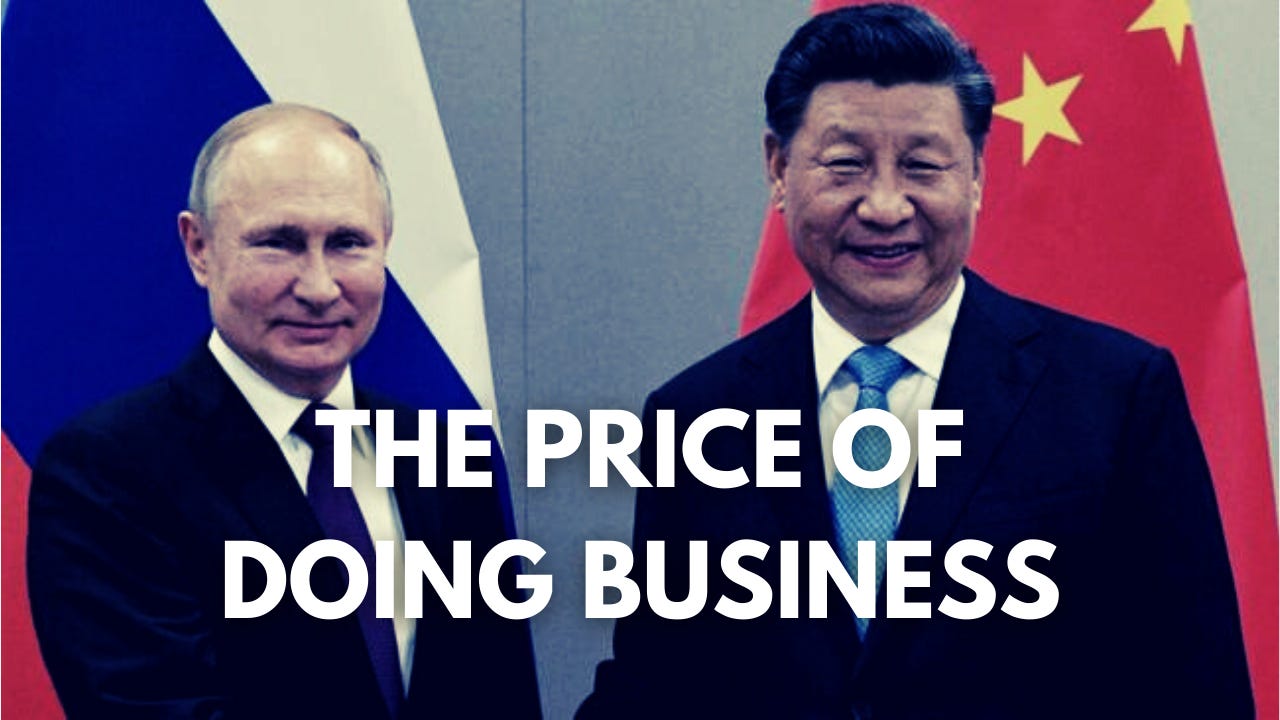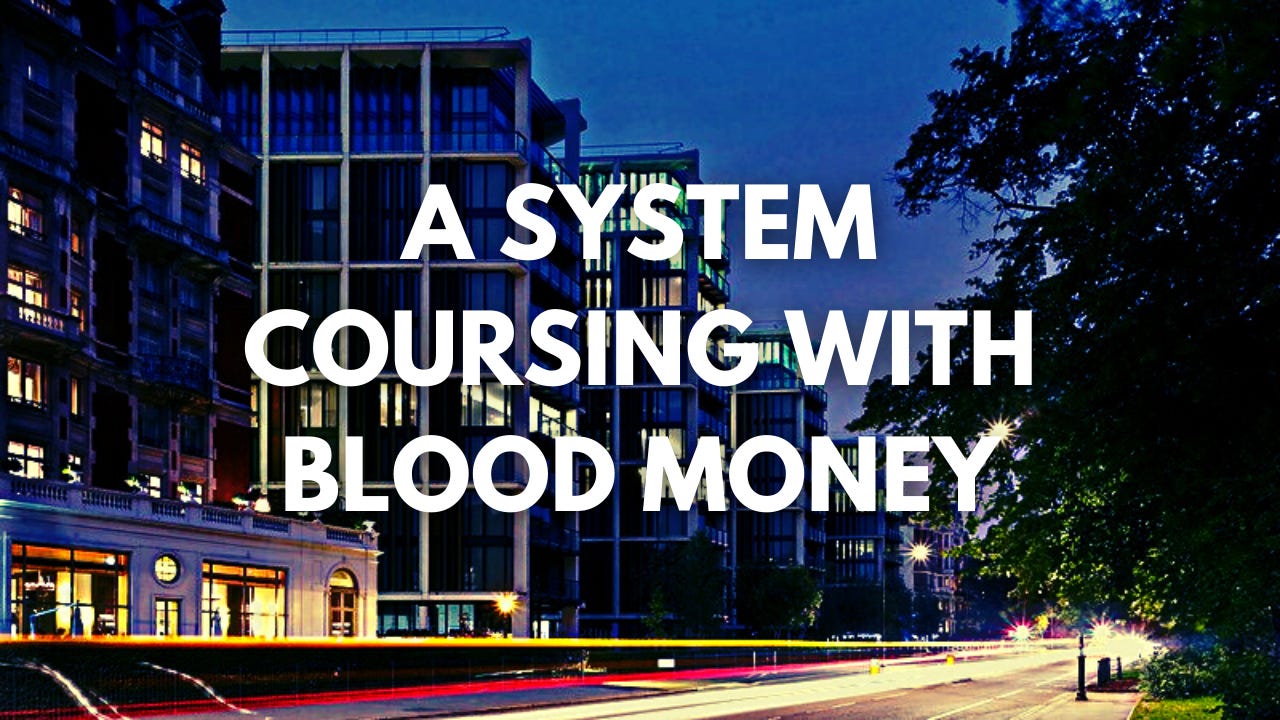The Consequences of Poison
The West welcomed Putin and his criminal oligarchs into the world order to gain access to their money and resources. Now, we're witnessing the consequences of accepting authoritarianism
The dance had gotten repetitive.
American leaders had made it an annual tradition of meeting with Vladimir Putin and then expressing hesitance with a touch of distrust. These meetings were always icy and awkward, the theater of the spectacle laced through with threats of a new Cold War lurking behind every gesture. That is, save for two notable exceptions: Donald Trump’s slavish worship and George W. Bush, who bizarrely commented on having looked the dictator in the eyes, glimpsing his “soul,” and describing him as “very straightforward and trustworthy.” Putin, Bush was convinced, could be a “partner and friend.”
This show had a purpose. American leaders and Putin needed to maintain a distance and tension between them in order to please their respective power bases while the economic relationship continued to flourish. Putin’s ascent to power had come at an opportune time for the West as the neoliberalization project required a strongman to bring the post-Soviet world to bear. It did not matter what happened to Russian citizens, whether their rights were guaranteed or even real, as long as the economic priorities were continuing unabated. After all, neoliberalism is perfectly fine working with dictators. It was planted in an authoritarian state and, quite frankly, worked better in an authoritarian state.
Putin’s crimes were acceptable. The West could criticize them, speak out against them in the press while lionizing America’s fictional “record” of human rights, but there was never really talk of doing anything about it. Russia was Russia and Putin was Putin. His style of authoritarianism was fine as long as it remained within Russian borders.
What mattered was the wealth. Putin and his oligarchs controlled the services that had been privatized following the fall of the U.S.S.R. and were more than happy to spread that wealth around in exchange for western privileges and luxuries. Their children went to the finest schools. Their stolen money was laundered through real estate and markets thrilled to take their cash and look the other way. Russia was an exemplary member of the global capitalist order.
All that was required to keep the game running was that song and dance. To voice a concern about Putin, say all the right things, and look the other way as he brutalized his people.
Dispatches From A Collapsing State is an independent media venture and the home of Jared Yates Sexton’s political, historical, and cultural writings. It depends on your support. Subscribe now to access exclusive content, including subscriber-only articles and the new Audio From A Collapsing State feature.
As the Cold War came to a close, the perception was that America would create a new and stable order predicated on free markets and hypercapitalism. This would link the entire world together through trade deals and economic cooperation, eradicating, experts promised, any chance of war or strife. By bringing in formerly closed markets like Russia and China it was reasoned that both states would become more liberal over time.
This was a mistake. Or a delusion. Or a lie. All three, really. The prospective profits were too much to ignore and capitalists were desperate for expansion. The entire idea of Western powers exporting their ideas and “values” was absurd on its face. The United States exploited other cultures and people and operated with a virtual apartheid system of oppressive laws. What actually happened was the open authoritarianism of Russia and China fed back through the system and amplified the existing traits in America.
With China, cheap goods dominated the new international system and wreaked havoc on American industry and communities. Desperate for Chinese markets, American corporations embraced dystopian measures of control and the cruel exploitation of workers. They took advantage of that labor and offered their services in censoring the internet and furthering the control.
Putinist Russia took its own toll. The dictatorship appealed to American conservatives facing grim electoral and cultural prospects. They shared a reactionary worldview, a hatred of multiculturalism and tolerance, a disdain for democracy, a desire to order the world around religious discipline and orthodoxy, and lived within a conspiratorial reality brimming with New World Order conspiracy theories. Over time, the Right Wing and the GOP became ideologically synonymous with Putin.
The belief that neoliberal globalism would be a force for good or peace was, at best, misguided, and, at worst, a cover story to legitimize unfettered greed. By accepting these abuses, and adding them to America’s own record of outright hypocrisy, the stage was set for all of these issues to grow and grow and grow until there was nothing left outside of them. It was a poison pill and we swallowed it down and asked for more.
As Putin’s army begins its invasion of Ukraine, the best the Western world has is sanctions. Germany stalled a pipeline. America targeted Russian banks and a handful of billionaires. Meanwhile, Russian money pumps through the international system. It’s here. It’s throughout Europe. It’s living in our stock exchanges, it keeps cities’ worth of luxury apartments and office spaces afloat. It even keeps the businesses of Donald Trump from collapsing.
Capitalism has an incredible ability to separate funds from where they originated. That’s one of the powers of money. It becomes its own thing, a symbol of something else we can never quite see or touch. Once it gets into the bloodstream and circulates, once it launders, we lose sight forever from where it came. This is blood money. Money stolen from the Russian people. Money harvested through organized crime, oppression, and cruelty. And, despite the laundering, you can never quite wash the gore from it.
Putin’s gambit is based on confidence that this global system, which was supposed to prevent these moments of aggression, is so interlocked that it would take the rest of the world accepting its own suffering in order to actually level pressure against him. Interlocking capitalism means a blow against Russia reverberates throughout the rest of the world. And Putin has already taken measures to secure his own financial fortunes. China has offered assistance and, outside of some discomfort, chances are this situation will play out with only a few oligarchs, if any, actually experiencing discomfort. What’s more, the market will more than likely make room for Putin, leading to a gradual acceptance of his invasion of Ukraine.
The point is that when these concessions are made, when the global and economic elite decided authoritarianism was not only acceptable but preferable, it was only a matter of time until someone like Putin recognized the lay of the land and took advantage. History is littered with these moments where systems that were supposedly invincible and immortal buckled. It’s time to recognize this isn’t simply a story of a dictatorial aggressor, but also a world that made this possible in the first place.






